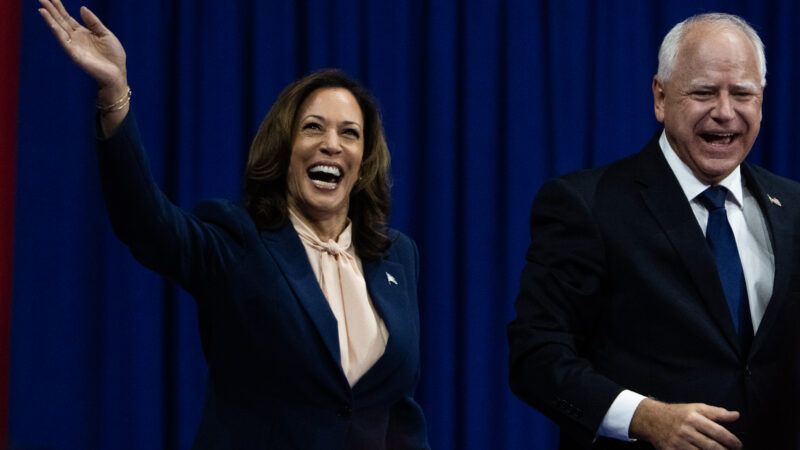Harris' Economic Illiteracy
Plus: Taylor Lorenz scandal, Chinese economy in trouble, tax-free tips, and more...

Harris unveiling more policy proposals today: What fresh hell awaits us?
Today, Democratic presidential contender Kamala Harris plans to unveil a new raft of policy proposals, including one that would offer $25,000 in down-payment support to first-time homebuyers, with even more doled out to first-generation purchasers.
Now, the housing market needs lots of things, but subsidizing demand ain't it. In most places, the best way to alleviate high rental and purchase prices would be to cut regulations that make it hard to build.
People's homebuying behavior has been drastically altered by high interest rates, a direct consequence of Federal Reserve policy meant to cool inflation. Come September, it's likely that the Fed will choose to begin the lowering process, which will most likely (slowly, over time) have the effect of spurring more home transactions. (Right now, those who bought homes in a low-interest-rate environment tend to want to stay in place, as transacting and originating a new mortgage would mean getting a significantly worse rate.)
Somewhat contradictory information has been circulating as to whether Harris' policy would be directed toward the homebuyers themselves vs. the developers building these homes (in the form of tax incentives). Hopefully more will be revealed in her address later today, but regardless of which form it takes, government meddling in the housing market will probably not yield the desired results.
Focusing on cost of living: Many of Harris' proposals thus far seem to address not job creation, promoted by Joe Biden, but rather trying to lower out-of-control cost of living. This is a good instinct. The only problem is that Harris' proposals are terrible on this front and will either be impossible to implement or result in unintended consequences that fail to meaningfully affect people's bottom lines.
She seeks to cap insulin costs and other pharmaceutical drug prices, restore the COVID-era expansion of the child tax credit, and use the Affordable Care Act to reduce the cost of health insurance. This is all in addition to her proposal—the one I wrote about yesterday—to crack down on the profits of those greedy, greedy grocers, posting those *checks notes* 1.18 percent net profit margins. Who knows where she'll go next?
Harris should really lean into it today and set grain targets, too.
— Charles C. W. Cooke (@charlescwcooke) August 16, 2024
Scenes from New York: "A state judge has ordered New York City to allow a convenience store in Queens to reopen after it was accused of selling cannabis illegally, a decision that could significantly affect the city's effort to wipe out thousands of unlicensed sellers," reports The New York Times.
QUICK HITS
- Washington Post reporter Taylor Lorenz apparently lied about calling President Joe Biden a "war criminal." Here's what I can piece together: She attended an event at the White House for digital influencers on Wednesday, where she took a photo of Biden and posted it to her private Instagram Story, adding "war criminal :(" as text on the photo. The New York Post's Jon Levine posted a screenshot of the story to X. "You people will fall for any dumbass edit someone makes," she responded, denying the authenticity of it. The only trouble is that she appears to have been lying; four people with viewing access to Lorenz's private story confirmed its authenticity to NPR. This all seems petty and silly to even bring up, but forgive me for thinking reporters who've amassed massive followings, who frequently decry "misinformation," ought to be truthful.
- "After a dismal second quarter, [China's] economy lost momentum further in July: new home prices fell at the fastest pace in nine years, industrial output slowed, export and investment growth dipped and unemployment rose," reports Reuters.
- Tyler Cowen on tax-free tips
- "It's hard to exaggerate how bad this policy is," writes The Washington Post's Catherine Rampell on Kamala Harris' proposed crackdown on grocers. "It is, in all but name, a sweeping set of government-enforced price controls across every industry, not only food. Supply and demand would no longer determine prices or profit levels. Far-off Washington bureaucrats would. The FTC would be able to tell, say, a Kroger in Ohio the acceptable price it can charge for milk."
- This is kind of a great Associated Press headline: "What do marijuana, the death penalty and fracking have in common? Harris shifted positions on them"


Show Comments (453)